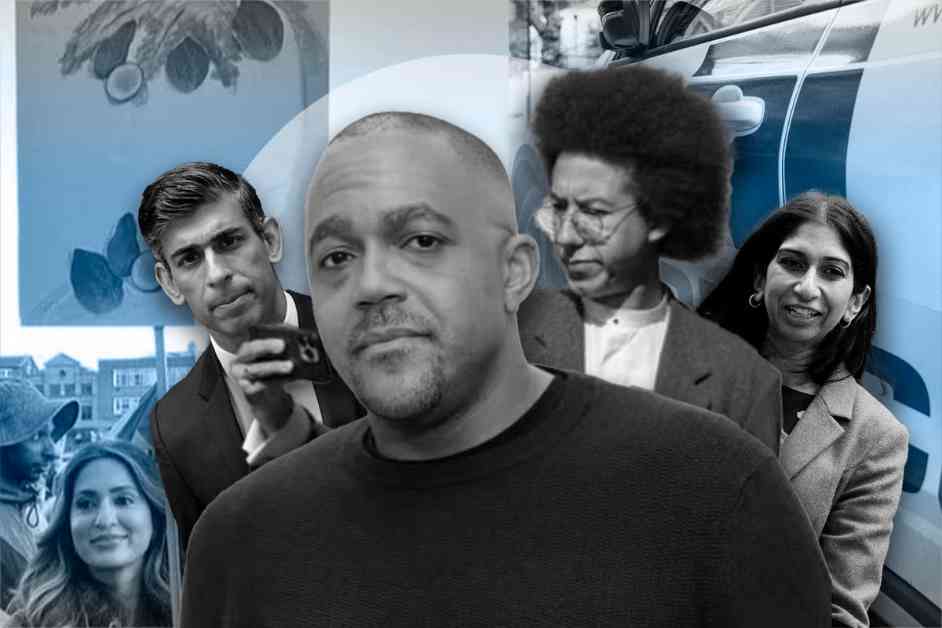The ‘Coconuts’ Case: How a Black Studies Professor Assisted Police
A prominent Black studies professor found himself in the midst of a criminal investigation after being asked to assist police in a high-profile case involving a British Asian woman charged with a hate crime. Professor Kehinde Andrews, the UK’s first professor of Black studies, was approached by the Metropolitan Police to lend his expertise to a Crown Prosecution Service review into whether Marieha Hussain should be charged for her ‘coconuts’ placard.
Ms. Hussain, 37, was arrested in April for carrying a placard depicting ex-prime minister Rishi Sunak and former home secretary Suella Braverman as coconuts during a demonstration. The use of terms like “coconut” and “c**n” as insults within Black and Asian communities to describe individuals perceived as sympathetic to racist agendas has sparked controversy and debate.
Expertise and Controversy
Despite declining to participate in the review, Professor Andrews advised the CPS and police to drop their investigation into Ms. Hussain. However, she was charged in May and eventually found not guilty after a two-day trial at Westminster Magistrates Court. The case drew attention to the complexities of racial language and the challenges faced by law enforcement in addressing intra-communal issues.
In an email exchange with a Met Police officer, Professor Andrews highlighted the distinction between racial slurs and political critiques, emphasizing the importance of understanding the historical context and impact of language within marginalized communities. He also raised concerns about the potential repercussions of pursuing such cases on community relations with law enforcement.
Cultural Competence and Community Relations
The case involving Ms. Hussain and Professor Andrews underscores the need for law enforcement agencies and the CPS to enhance their cultural competence and sensitivity when dealing with matters related to race and ethnicity. The lack of insight and understanding of intra-communal dynamics can lead to misunderstandings and exacerbate tensions between marginalized communities and the authorities.
Critics have pointed out that the police and legal system’s handling of cases like Ms. Hussain’s reflects broader issues of systemic racism and bias within the criminal justice system. The challenges of navigating complex issues of identity, language, and representation require a nuanced and informed approach that takes into account historical context and community perspectives.
Challenges and Opportunities
As the UK grapples with ongoing debates around race, diversity, and inclusion, incidents like the ‘coconuts’ case serve as a reminder of the complexities and challenges inherent in addressing issues of discrimination and prejudice. The role of scholars like Professor Andrews in providing critical analysis and insights into these matters highlights the importance of diverse perspectives in shaping public discourse and policy.
Moving forward, there is an opportunity for law enforcement agencies, prosecutors, and policymakers to engage with communities and experts to develop more inclusive and equitable approaches to addressing hate speech and discrimination. By fostering dialogue, understanding, and collaboration, it is possible to build trust and promote social cohesion in a diverse and multicultural society.
In conclusion, the ‘coconuts’ case involving Professor Kehinde Andrews and Marieha Hussain sheds light on the intersections of race, language, and law in contemporary society. It underscores the need for a more nuanced and culturally competent approach to addressing issues of discrimination and hate speech. By engaging with experts, communities, and stakeholders, we can work towards a more just and inclusive society for all.












